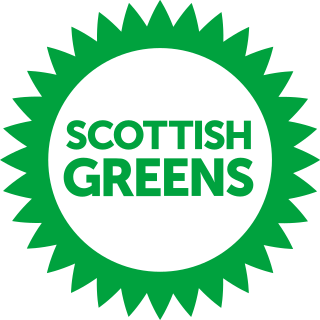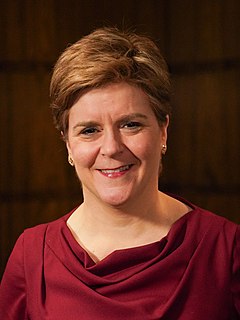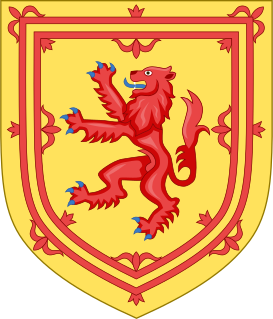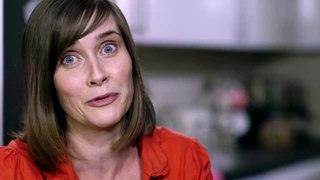Related Research Articles
The Scottish National Party is a Scottish nationalist and social democratic political party in Scotland. The SNP supports and campaigns for Scottish independence from the United Kingdom and for membership of the European Union, with a platform based on civic nationalism. The SNP is the largest political party in Scotland, where it has the most seats in the Scottish Parliament and 45 out of the 59 Scottish seats in the House of Commons at Westminster, and it is the third-largest political party by membership in the United Kingdom, behind the Labour Party and the Conservative Party. The current Scottish National Party leader, Nicola Sturgeon, has served as First Minister of Scotland since 20 November 2014.

The United Kingdom is a unitary state with devolution that is governed within the framework of a parliamentary democracy under a constitutional monarchy in which the monarch, currently Queen Elizabeth II, is the head of state while the Prime Minister of the United Kingdom, currently Boris Johnson, is the head of government. Executive power is exercised by the British government, on behalf of and by the consent of the monarch, and the devolved governments of Scotland, Wales and Northern Ireland. Legislative power is vested in the two chambers of the Parliament of the United Kingdom, the House of Commons and the House of Lords, as well as in the Scottish and Welsh parliaments. The British political system is a two party system. Since the 1920s, the two dominant parties have been the Conservative Party and the Labour Party. Before the Labour Party rose in British politics, the Liberal Party was the other major political party, along with the Conservatives. While coalition and minority governments have been an occasional feature of parliamentary politics, the first-past-the-post electoral system used for general elections tends to maintain the dominance of these two parties, though each has in the past century relied upon a third party, such as the Liberal Democrats, to deliver a working majority in Parliament. A Conservative–Liberal Democrat coalition government held office from 2010 until 2015, the first coalition since 1945. The coalition ended following parliamentary elections on 7 May 2015, in which the Conservative Party won an outright majority of seats, 330 of the 650 seats in the House of Commons, while their coalition partners lost all but eight seats.

The Scottish Greens are a green political party in Scotland. The party has seven MSPs in the Scottish Parliament as of May 2021. As of the 2017 local elections, the party sits on six of the 32 Scottish local councils, with a total of 19 councillors. They hold two ministerial posts in the third Sturgeon government following a power-sharing agreement with the SNP in August 2021, marking the first time Green party politicians will be in government in the UK.

Scottish independence is the political movement for Scotland to become a sovereign state, independent from the United Kingdom.

Nicola Ferguson Sturgeon is a Scottish politician serving as First Minister of Scotland and Leader of the Scottish National Party (SNP) since 2014. She is the first woman to hold either position. She has been a member of the Scottish Parliament (MSP) since 1999, first as an additional member for the Glasgow electoral region, and as the member for Glasgow Southside from 2007.

Unionism in Scotland is a political movement which favours the continuation of the political union between Scotland and the other countries of the United Kingdom, and hence is opposed to Scottish independence. Scotland is one of four countries of the United Kingdom which has its own devolved government and Scottish Parliament, as well as representation in the UK Parliament. There are many strands of political Unionism in Scotland, some of which have ties to Unionism and Loyalism in Northern Ireland. The two main political parties in the UK — the Conservatives and Labour — both support Scotland remaining part of the UK.

Joanne Kate Swinson is a former British Liberal Democrat politician who was Leader of the Liberal Democrats from 22 July to 13 December 2019. She was the first woman and the youngest person to hold the position, as well as the holder of the post for the shortest period of time. Swinson was the Member of Parliament (MP) for East Dunbartonshire from 2005 to 2015 and 2017 to 2019. In September 2020 Swinson became Director of Partners for a New Economy (P4NE).
Scottish Labour is a social democratic political party in Scotland. It is an autonomous section of the UK Labour Party. From their peak of holding 56 of the 129 seats at the first Scottish parliament election in 1999, the Party has lost seats at each Holyrood election until it returned just 22 MSPs at the 2021 election. The party currently holds one of 59 Scottish seats in the UK House of Commons, with Ian Murray having represented Edinburgh South continuously since 2010.

The Scottish Conservatives, officially the Scottish Conservative & Unionist Party, is a centre-right political party that operates in Scotland. It is the second-largest party in the Scottish Parliament and Scottish local government. The party has the second largest number of Scottish MPs in the House of Commons of the United Kingdom.
The Scottish Liberal Democrats is a liberal, federalist political party in Scotland, a part of the United Kingdom Liberal Democrats. The party currently holds 4 of the 129 seats in the Scottish Parliament and 4 of the 59 Scottish seats in the UK House of Commons.

William Cowan Rennie, commonly known as Willie Rennie, is a Scottish politician who served as the Leader of the Scottish Liberal Democrats from 2011 to 2021. He has served as the Member of the Scottish Parliament (MSP) for North East Fife since 2016, and previously as a list MSP for Mid Scotland and Fife and as Member of Parliament (MP) for Dunfermline and West Fife.

Politics in the Dundee Citycouncil area are evident in the deliberations and decisions of Dundee City Council, in elections to the council, and in elections to the Scottish Parliament (Holyrood) and the House of Commons of the Parliament of the United Kingdom (Westminster).

The Liberal Democrats are a liberal political party in the United Kingdom. The party has 13 Members of Parliament in the House of Commons, 84 members of the House of Lords, four Members of the Scottish Parliament, one member in the Welsh Senedd and two members in the London Assembly. The party served as the junior party in a coalition government with the Conservative Party between 2010–2015, with Scottish Labour in the Scottish Executive from 1999 to 2007, and with Welsh Labour in the Welsh Government between 2000 to 2003 and between 2016 to 2021.

Wendy Anne Chamberlain is a Scottish politician serving as Chief Whip of the Liberal Democrats and the Liberal Democrat Spokesperson for Scotland and Wales since 2020, and the Deputy Leader of the Scottish Liberal Democrats since 2021. Chamberlain has served as the Member of Parliament (MP) for North East Fife since 2019.
Better Together was the principal campaign for a No vote in the 2014 Scottish independence referendum, advocating Scotland continuing to be part of the United Kingdom. The organisation was formed in June 2012, operating until winning the vote on the referendum's polling day on 18 September 2014 with 2,001,926 (55.3%) voting against independence and 1,617,989 (44.7%) voting in favour. In June 2014, the campaign adopted a No Thanks branding, in relation to the referendum question.

The 2015 United Kingdom general election was held on Thursday, 7 May 2015 to elect 650 members to the House of Commons. It was the first and, as of 2022, the only general election held at the end of a fixed-term Parliament. Local elections took place in most areas on the same day.

The 2019 United Kingdom general election was held on Thursday, 12 December 2019. It resulted in the Conservative Party receiving a landslide majority of 80 seats. The Conservatives made a net gain of 48 seats and won 43.6% of the popular vote – the highest percentage for any party since 1979.

The Scottish Government has proposed holding a second referendum on Scottish independence from the United Kingdom (UK). A first referendum on independence was held in September 2014, with 55% voting "No" to independence. Ahead of that referendum, the Scottish Government stated in its white paper proposing independence that voting Yes was a "once in a generation opportunity to follow a different path, and choose a new and better direction for our nation".

Beatrice Wishart is a Scottish Liberal Democrats politician who has been the Member of the Scottish Parliament (MSP) for Shetland since 2019. Wishart currently serves as education spokesperson for her party, and has a seat on the Scottish Parliament committees for Education and Skills, for Culture, Tourism, Europe and External Affairs, and for COVID-19. She was elected at the 2019 Shetland by-election, after the sitting Liberal Democrat MSP Tavish Scott stepped down.

"The woman who made up her mind" was a political advertisement opposing Scottish independence from the United Kingdom, created by Better Together, the main group opposing independence. The advert aired on Scottish television and ran online during the 2014 referendum campaign. The two-and-a-half-minute advert consists of a monologue by a middle-aged housewife, alone in her kitchen in mid-morning. She begins by lamenting the effects of the referendum debate and her husband's passionate interest in it on her household, then considers the arguments in favour of independence. Expressing scepticism about them, she finally announces she will be voting against it as it is too much of a risk.
References
- ↑ Broughton, David (2014). British Elections and Parties Yearbook 1994. Routledge. p. 265. ISBN 978-1135205454.
- ↑ Mackintosh, Fred (30 June 2019). "The people who will make the new party complaints system work". Liberal Democrat Voice. Retrieved 10 September 2019.
- 1 2 Brooks, Libby (27 August 2014). "Scottish independence: No campaign's new ad convinces some to vote yes". The Guardian . Retrieved 10 September 2019.